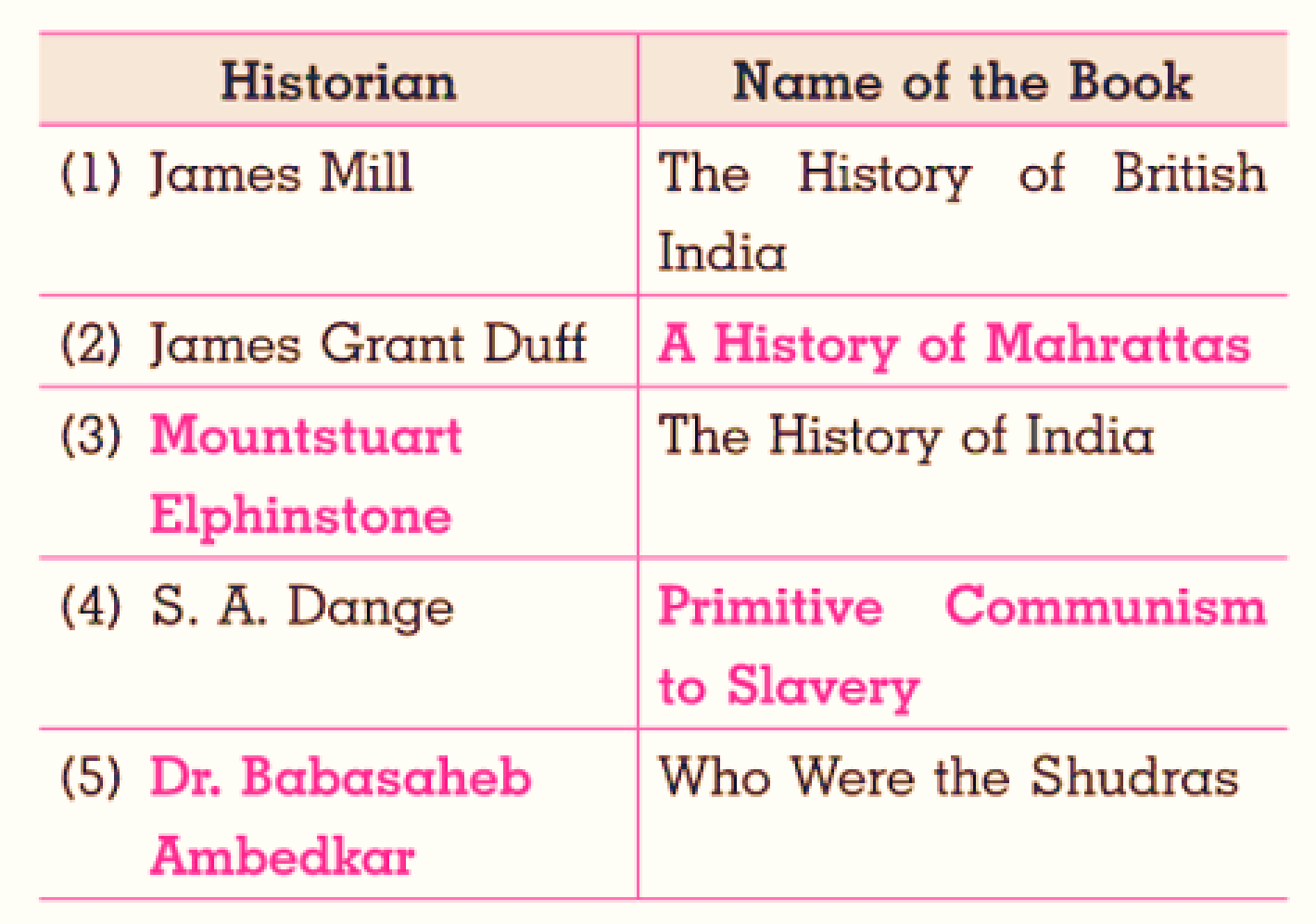Following are the questions that came in Board Papers (Textuals and Non-textual)
Chapter 2 . Historiography : Indian Tradition
Complete the sentences by choosing a correct option.
………… translated the Sanskrit text of ‘Hitopadesh’. (July ’19) (Textual)
(a) James Mill
(b) Friedrich max Muller
(c) Mountstuart Elphinstone
(d) Sir John Marshall
Ans. Friedrich Max Mulle
Complete the following chart. (July ’19; Sept. ’21) (Textual)
Ans.

Write short notes:
Indian Feminist Historiography : (March ’20) (Non-Textual)
Ans. (1) Tarabai Shinde, Pandita Ramabai and Dr. Rukhamabai were feminist historians before independence. (2) They wrote about employment of women, their right to political equality, treatment meted out to women at their workplace and gender discrimination. (3) A lot of literature is available unfolding the viewpoint of Dalit women on problems like social class, caste, etc. In the post-independence era. Dr. Sharmila Rege included her essays on the autobiographies of Dalit women in her book, ‘Writing Caste, Writing Gender : Reading Dalit Women’s Testimonies.’ (4) Meera Kosambi’s book, ‘Crossing Thresholds : Feminist Essays in Social History’ contains essays on the life stories of women like Pandita Ramabai and Dr. Rukhamabai, the first practising lady Doctor of India.
Explain the following with its reason.
Writing of the regional history received a momentum. (March ’19; July ’19) (Textual)
Ans. (1) Marathi historians like Nilkantha Janardan Kirtane, Vishwanath Kashinath Rajwade and Vishnu Shastri Chiplunkar criticized, and exposed the prejudiced attitude of the British historians. (2) The nationalistic historiography helped in the triggering of the independence movement of the Indian people against the British. (3) In this aspect the book, ‘The Indian War of Independence, 1857’, written by Vinayak Damodar Savarkar is of great importance. (4) Hence, writing of the regional history received momentum.
Write detailed answers to the following questions :
What is the contribution of Itihasacharya V.K. Rajwade to historiography ? (Nov. ’20: Sept. ’21) (Textual)
Ans. Rajwade is well-known for his writings in Marathi on varied subjects like history, linguistics, etymology, grammar, etc. (2) He was of the firm opinion that we should write our own history. (3) He compiled and edited 22 volumes of ‘Marathyanchya Itihasachi Sadhane’. (4) He wrote very scholarly prefaces to each of the 22 volumes. (5) He stated, ‘History is the all-inclusive image of the past societies. It does not include only the stories of political images, conspiracies and wars for seizing power.’ (6) He insisted that history should be written only using the authentic documentary source.